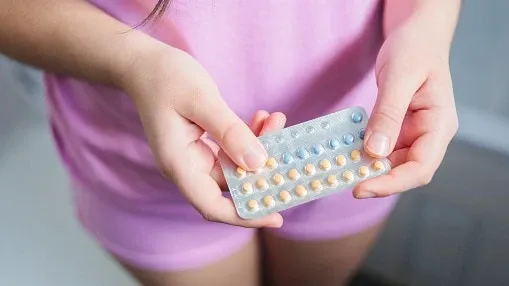"We are now regularly seeing women under 30 with alarmingly low AMH levels," says Dr Beena Muktesh, Clinical Director, IVF, Motherhood Fertility & IVF, adding how this early decline in ovarian reserve is altering the fertility landscape entirely.
WHAT IS DIMINISHED OVARIAN RESERVE OR EARLY MENOPAUSE?
Diminished ovarian reserve refers to a , which can make conception difficult both naturally and through IVF.
The Anti-Mllerian Hormone (AMH) blood test and antral follicle count via ultrasound are the most reliable tools to measure ovarian reserve.
A low AMH level can indicate declining fertility even before symptoms appear.
In many cases, the decline starts silently.
WHY ARE SO MANY YOUNG WOMEN AFFECTED?
The rise in early menopause, where the ovaries stop functioning before age 40, is now being seen at "alarming levels," according to experts.
"Girls as young as 19 are coming to us with menopause or extremely poor ovarian reserve," says Dr. Rishma Pai, consulting gynaecologist at Lilavati and PD Hinduja Hospitals. "This wasn't something we saw even a few years ago. It's now common and very concerning."
Dr. Vaishali Sharma, senior IVF specialist, adds that in many of these women, but their fertility potential is severely compromised.
"It's not always about whether a woman is menstruating. Many still get their periods, but have almost no viable eggs left. Natural conception becomes very difficult, and IVF outcomes are also affected," she says.
While genetics plays a key role in very young cases, experiencing menopause in late 20s and early 30s can be linked to chronic stress, poor sleep, crash diets, smoking, and exposure to environmental toxins.
These lifestyle and environmental factors can disrupt hormonal balance and accelerate ovarian ageing. Timely evaluation is key.
According to Dr. Muktesh, overuse of emergency contraception, long hours of sitting, excessive caffeine, smoking or vaping, and routine exposure to chemicals in packaged food, beauty products, and exposure to endocrine-disrupting chemicals found in plastics and cosmetics can play a role.
AWARENESS AND EARLY TESTING
Doctors unanimously agree that early testing and lifestyle changes are critical. "Women with a family history of early menopause, PCOS, or irregular cycles should test their fertility by their late 20s," says Dr. Miktesh.
Lifestyle adjustments can also make a difference. "Good sleep, stress management, a balanced diet, and avoiding smoking and crash diets are key to protecting ovarian health. Even small changes like reducing plastic use, and emergency contraceptives can help preserve fertility," says Dr. Aakriti Batra, fertility specialist at Nova IVF Fertility.
In cases where fertility is already lost due to early menopause, donor egg IVF remains the most effective treatment. "It has a success rate of nearly 80%," says Dr. Sharma. "While acceptance is difficult for some couples, it allows women to carry and deliver their own baby, even if genetically it's not their egg."
"Fertility is no longer just about age, it's about the environment your ovaries are functioning in," says Dr. Muktesh.
Despite the advancements in reproductive medicine, early menopause and DOR remain poorly understood by the general public.
"Most women think they can have children well into their 40s. But the truth is, ovarian ageing can start much earlier. And we now have the tools to catch it-if only more women knew," says Dr. Pai.
